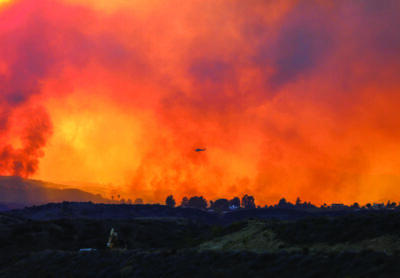By Mary Petersen
Signal Staff Writer
It has been said that the only cure for grief is to grieve. The dilemma is how to do that under the current circumstances. Because we’re self-isolating and avoiding crowds, we can’t engage in the rituals that help us process grief.
We don’t have access to typical kinds of grief support groups or the physical comfort of friends.
Grief is always difficult, but the pandemic has forced us to find new ways to grieve.
Grief is a natural part of being human. Loss is inevitable in every life and takes many forms. We can grieve for the death of a loved one, a pet, a way of life or a friendship. It is a fundamental process which affects us physically, mentally, emotionally and spiritually.
Ideally, grieving moves us beyond our initial emotional pain to a place of managing the loss in a healthy way.
In the case of grieving a loved one, often the grieving process begins at their bedside when we say good-bye, share fond memories or regrets, express love or apology.
Being present with the dying person allows us to psychologically process the finality of the loss. Without the ability to experience this, we may feel like there is no closure.
Mental health professionals are concerned that due to our inability to engage in important traditions that honor the departed, there is a greater risk for persistent, unresolved grief.
There are currently no gatherings for funerals or rituals.
These are important parts of the grieving process: seeing a casket lowered into the ground, sitting shiva or holding a wake, having people visit the home. Without the ability to formally say goodbye to a loved one during a funeral or memorial service, those left behind may feel a sense of ambiguous or delayed grief.
It can feel as though the person has not really died, despite rationally knowing otherwise.
We are meant to mourn with others. Coping with grief needs social connection. It helps us to find the courage and hopefulness to carry on. Just as we have with socializing and working from home, we need to create new ways to mourn.
Los Angeles grief expert David Kessler advises, “Don’t delay grief. Delaying goes against our human need to acknowledge the important loss.”
He suggests doing something small now, such as a family dinner and then something bigger later. A Zoom event can serve as a virtual memorial as long as the participants honor the occasion and maintain a reverent tone.
There are also technology apps and websites for online scrapbooks and virtual services.
Chaplain Bronwen Jones from Cedars-Sinai recommends setting a future date for a celebration of life in hopes of an in-person gathering. Even if it’s six months in advance, people will find comfort in knowing that it’s planned.
In the meantime, she suggests doing small things—light a candle, plant flowers, write a letter, share memories with friends. Find solace in connecting with others in new ways.
During these challenging times, commemorating the life of a loved one is still vital. Don’t let the moment pass.
Mary Petersen is a retired COC English instructor, 30-year SCV resident and two-time breast cancer survivor.











